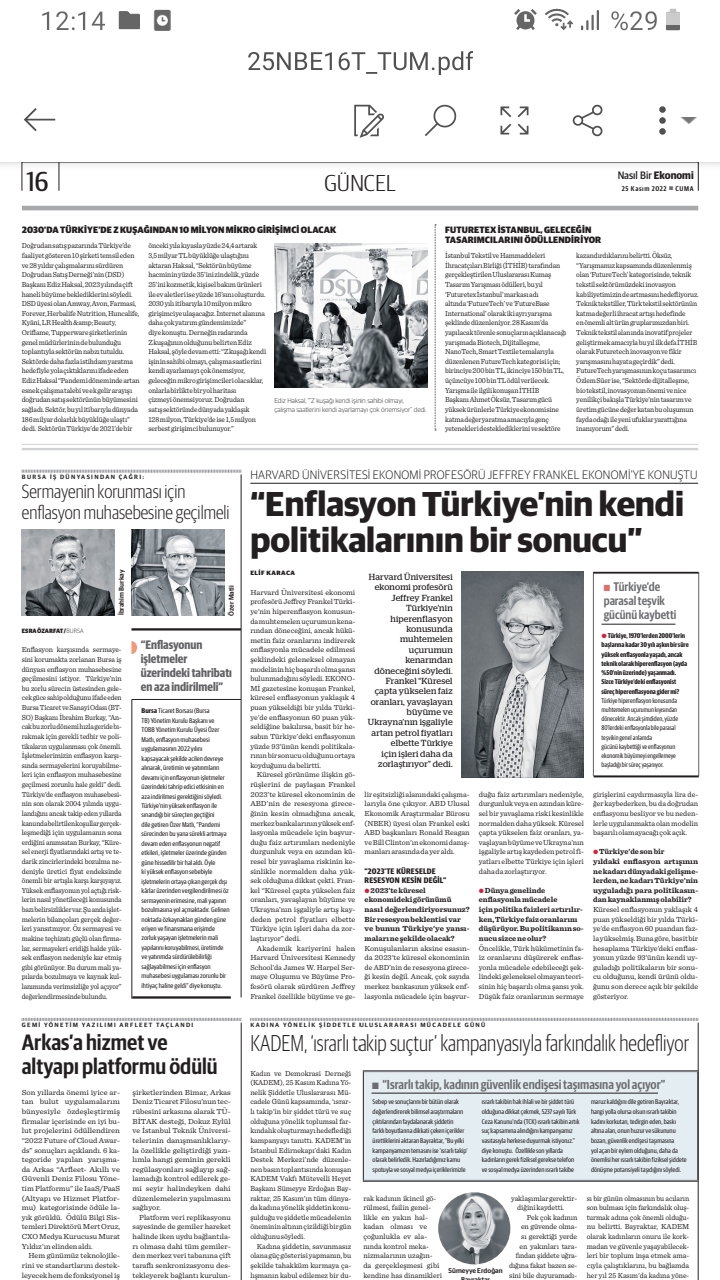November 25, 2022 — The following interview appears today in Ekonomi Gazetesi (in Turkish), Elif Karaca.
1) How do you see the state of the global economy in 2023? What about its reflections on Turkey?
JF: Contrary to most of what one hears, it is not certain that the world will go into recession in 2023, nor that the US will. But the risk of a recession is certainly greater than usual, or at least a global slowdown, due mostly to the increases in interest rates that most central banks are finding necessary in response to high inflation. Higher global interest rates and slowing growth of course make things more difficult for Turkey, as do the high oil prices that resulted from the Russian invasion of Ukraine.
2) Turkey has been implementing unconventional economic policies for the last year. While the policy rates are being increased to fight against inflation throughout the world, Turkey is lowering the interest rates. It is said that the fight against inflation will be carried out by increasing supply. Do you think such a policy has a chance for success?
JF: There is essentially no chance that the Turkish government’s unusual theory that it can fight inflation by lowering interest rates will succeed. What makes this conclusion so obvious is that the low interest rates deter capital inflows, which causes the lira to depreciate, which in turn feeds directly into inflation.
3) Inflation in Turkey has increased from below 20 percent to over 80 percent in the last year. In this period, inflation was also in a rising trend all over the world. However, it did not rise as much as in Turkey. How much of the increase in Turkey’s inflation in the last year may have resulted from developments in the world, and how much from Turkey’s own unconventional monetary policy?
JF: If Turkish inflation rose by more than 60 percentage points during a year when global inflation rose about 4 percentage points, the obvious calculation suggests that the country’s inflation problem was 93% homegrown.
4) Turkey experienced high inflation for over 30 years from the 1970s to the early 2000s, but technically no hyperinflation (over 50% per month) was experienced. Do you think the inflationary process in Turkey can lead to hyperinflation? What may be the consequences of high inflation even if it does not go as far as hyperinflation?
JF: Turkey will probably turn back before the abyss of hyperinflation. But already, with inflation at 80 %, it is in the range where monetary stimulus typically has lost its potency and inflation has begun to impede economic growth.
